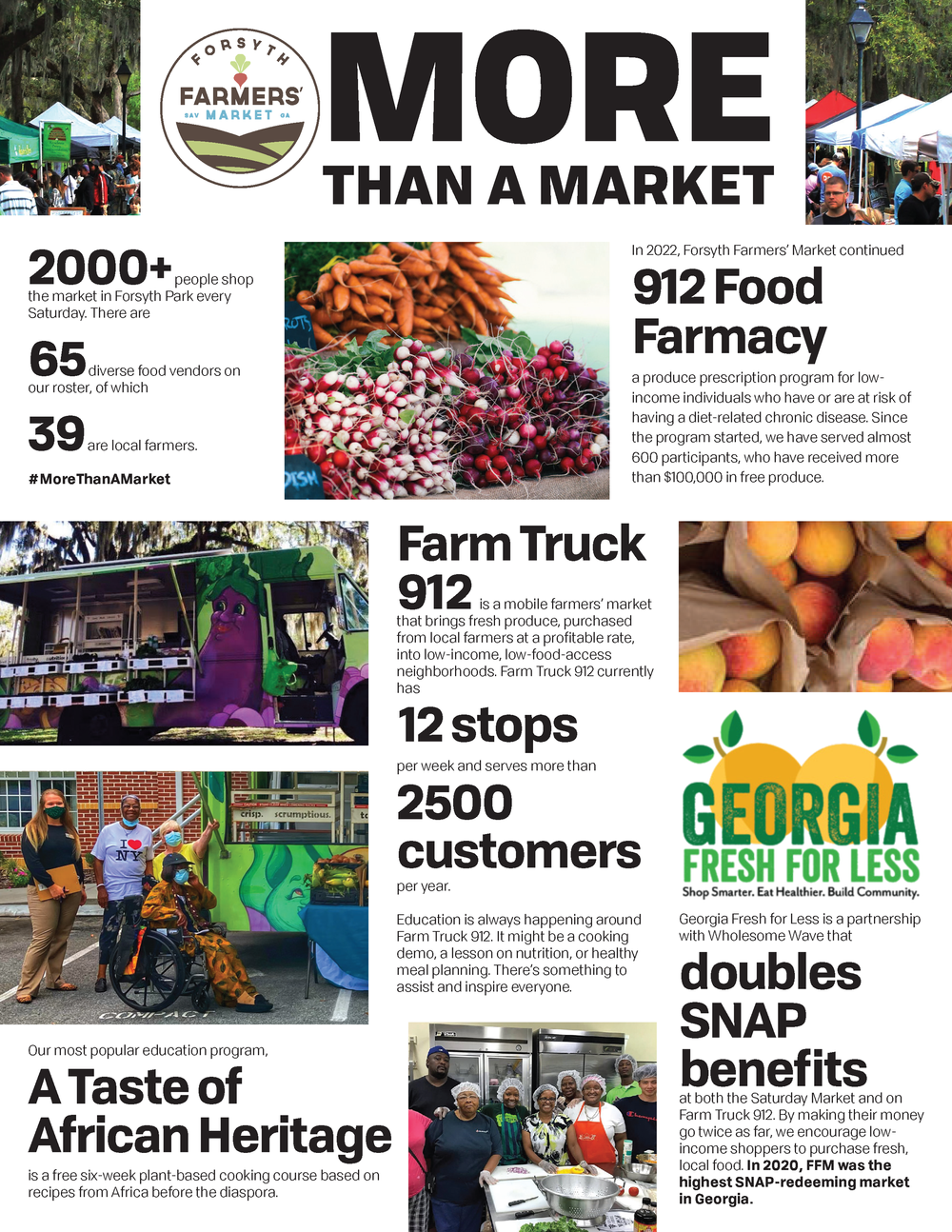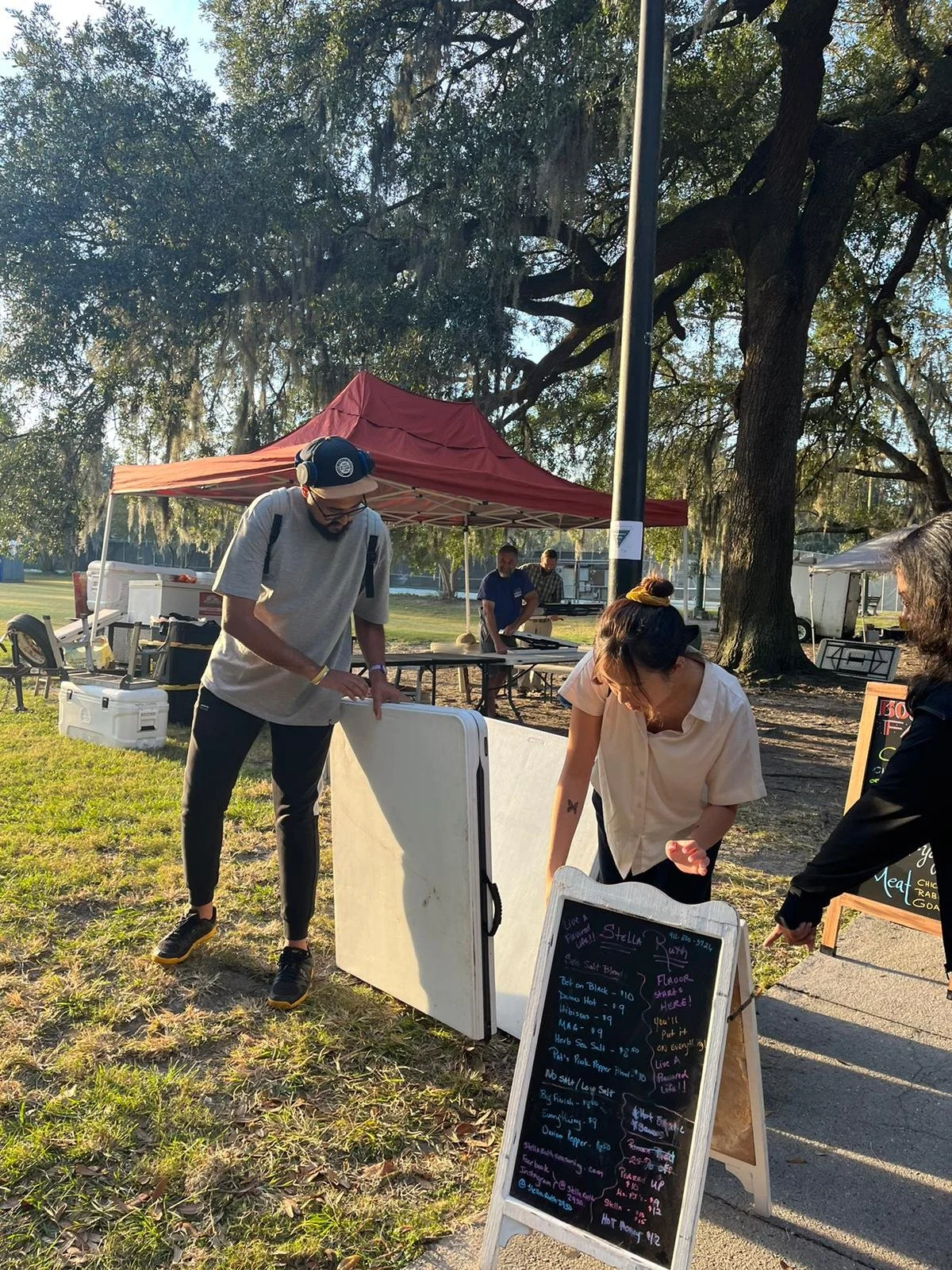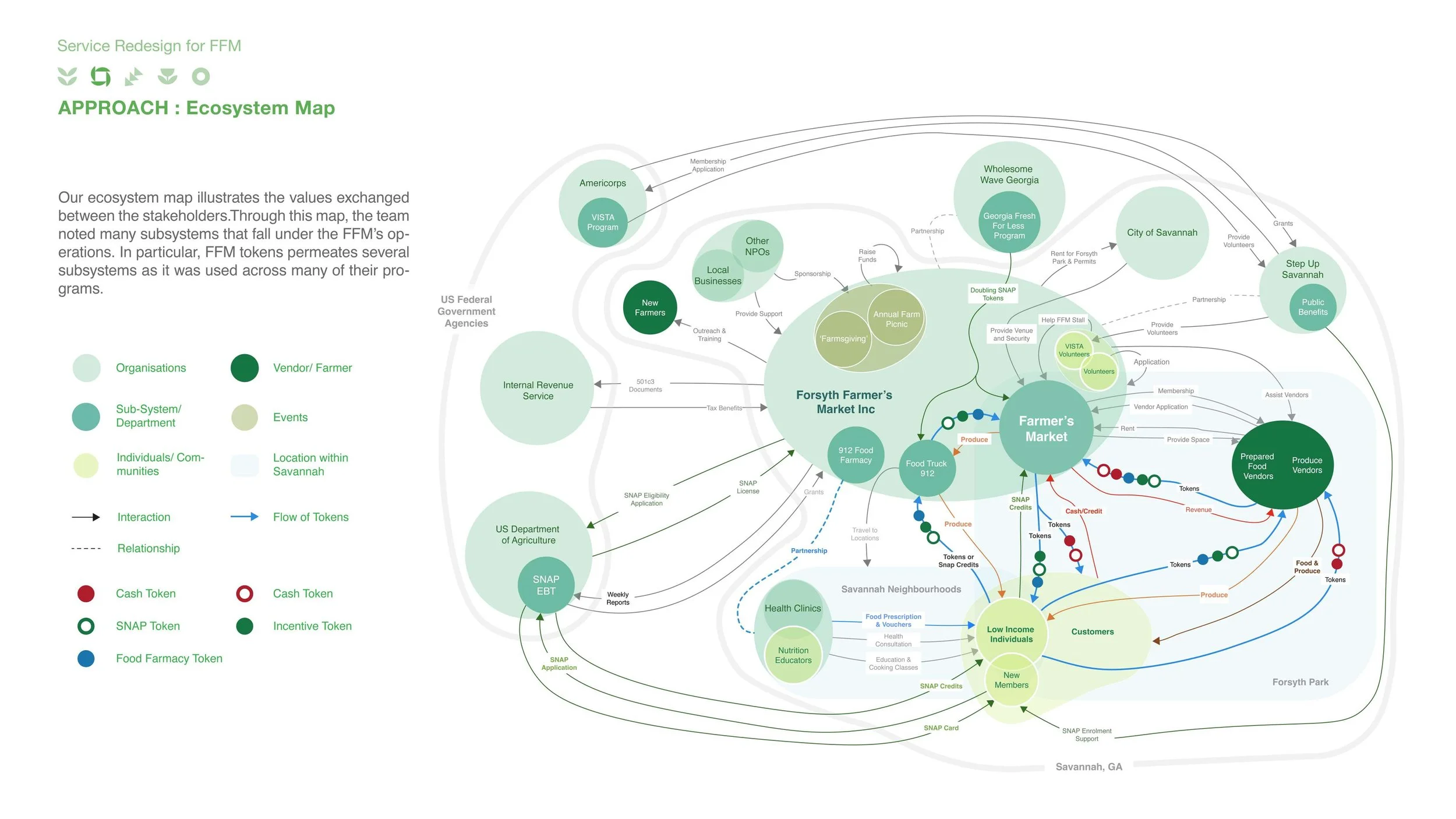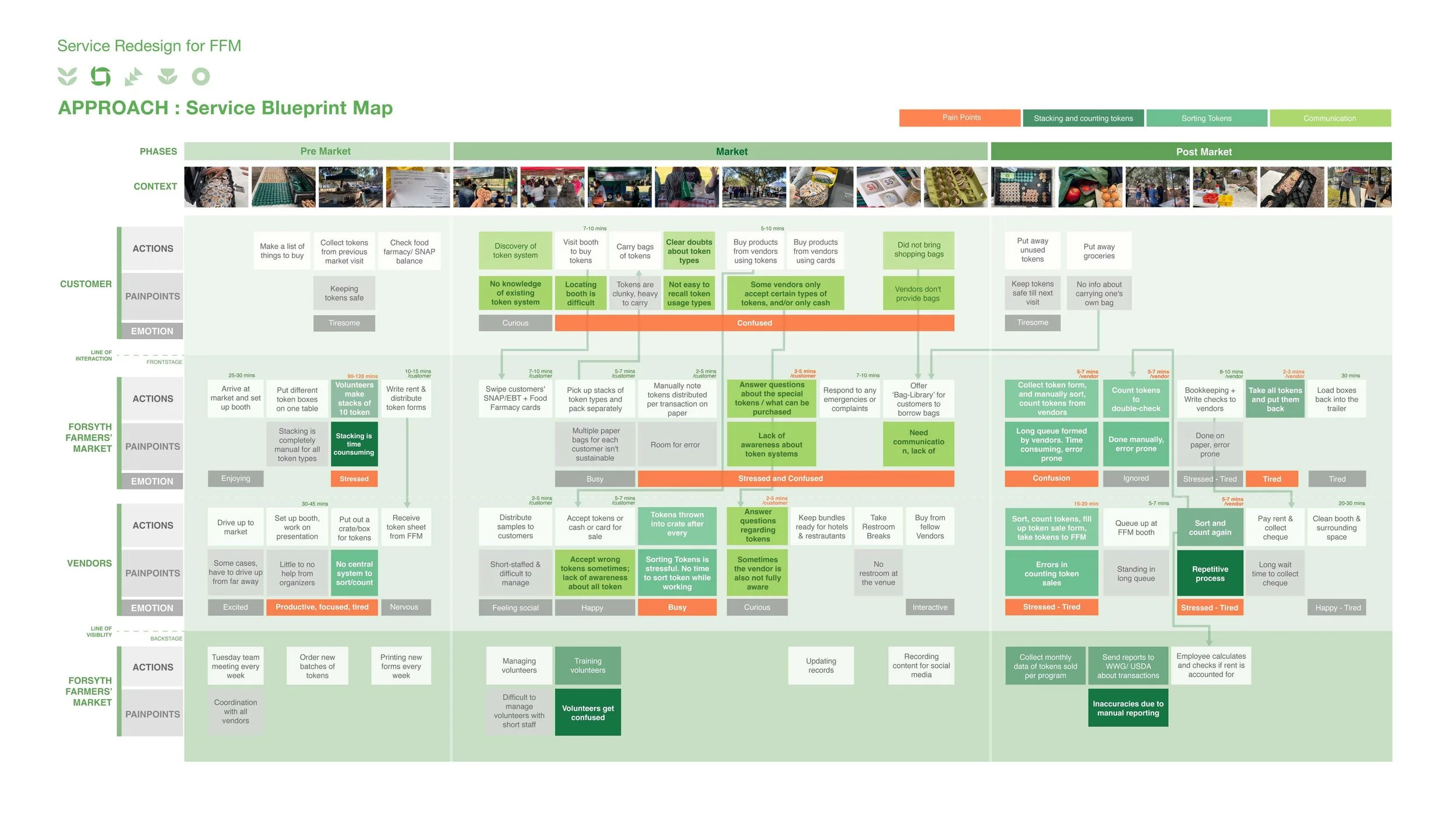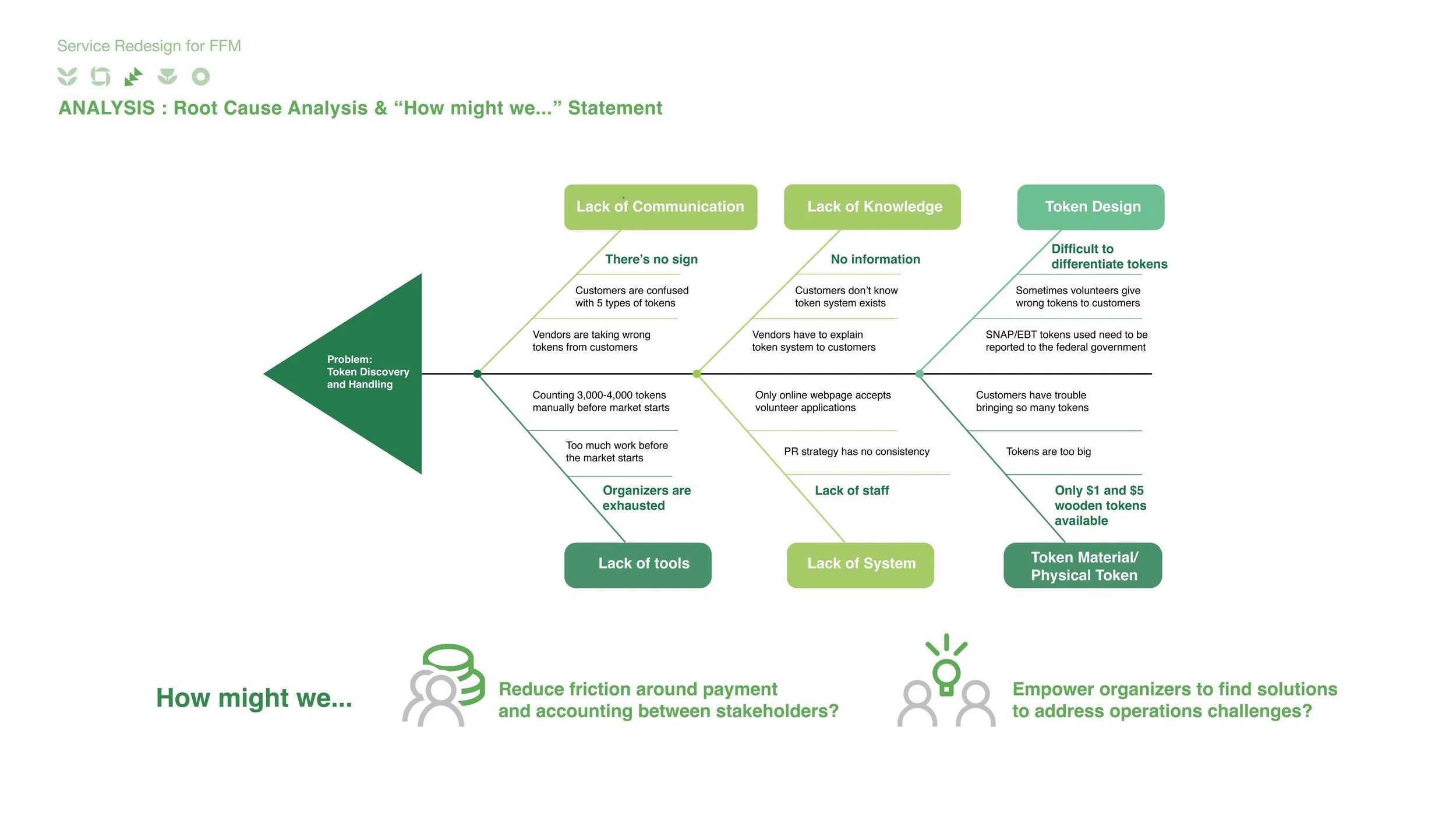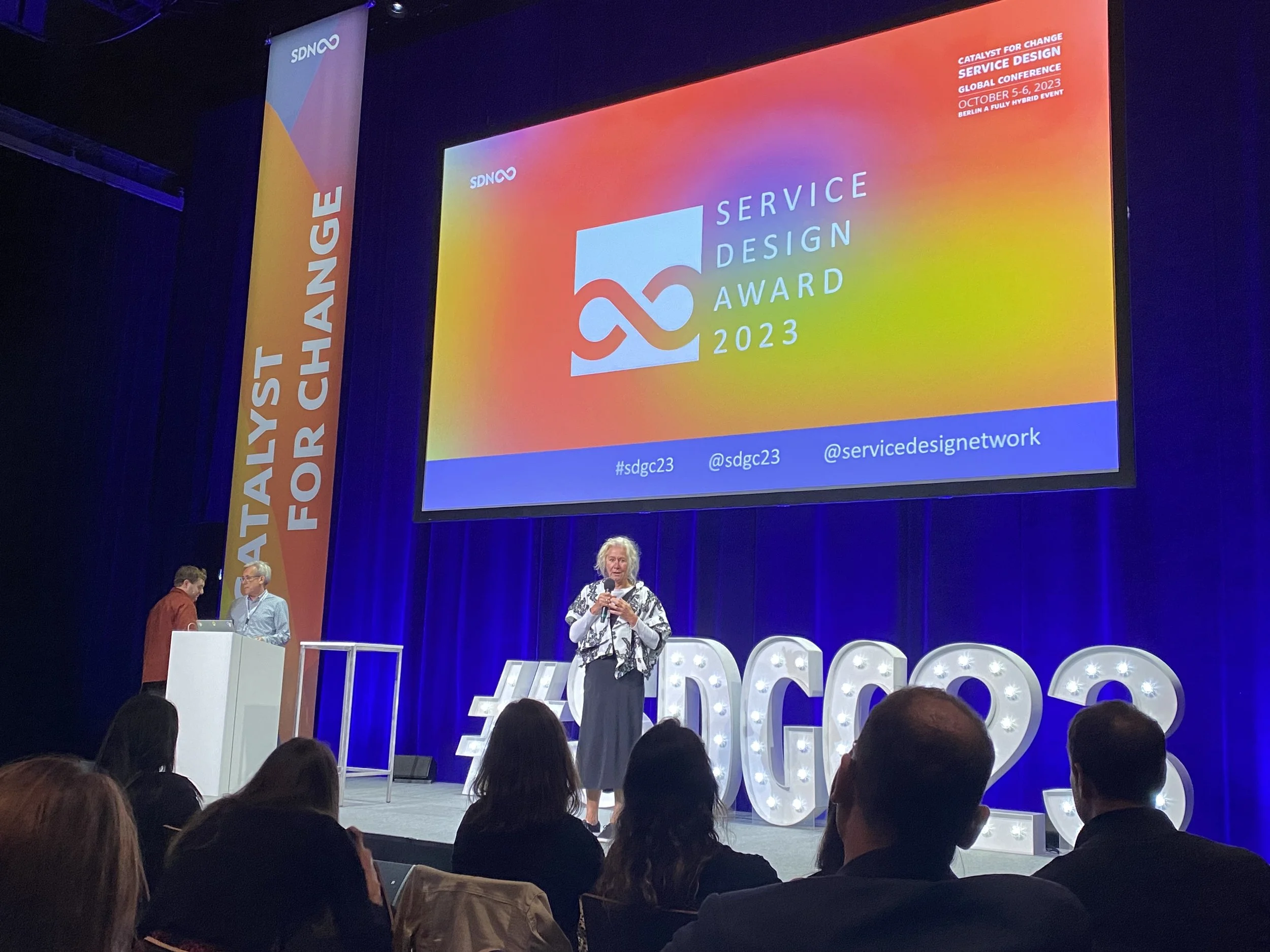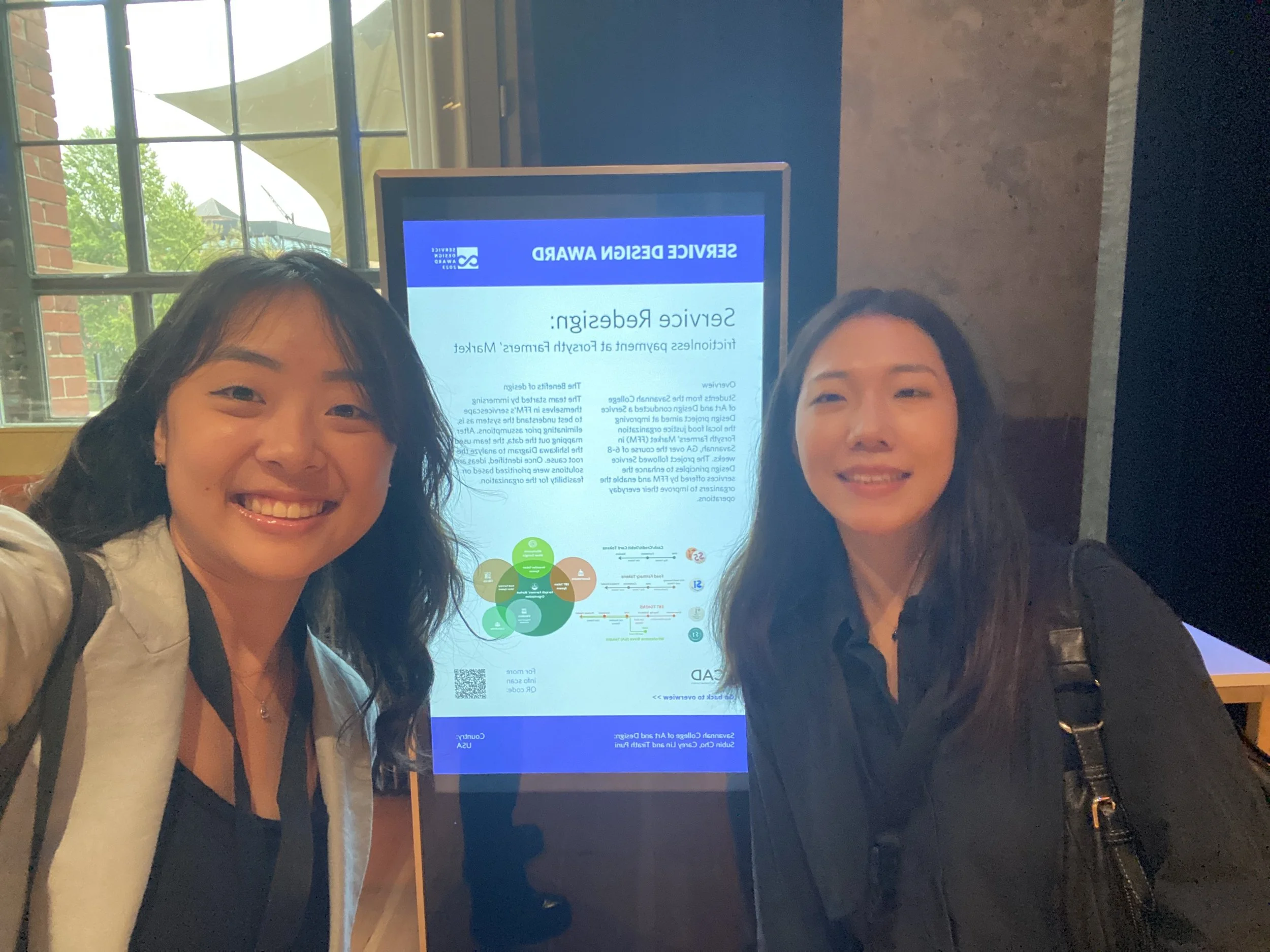
Student Finalist at the 2023 Service Design Network Global Conference. (Berlin, Germany)
Empowering community.
Forsyth Farmers’ Market (FFM) is a nonprofit in Savannah that aims to increase food accessibility through their various programs. Their weekly, mobile farmers’ market offers access to fresh produce to locations of food scarcity.
To empower FFM in reaching their long-term goals, we adopted a Service Design approach to uncover insights and offer solutions to their current challenges.
The Challenge
Forsyth Farmers’ Market (FFM) is a nonprofit organization in Savannah dedicated to addressing food accessibility through community-focused programs. Its weekly mobile farmers’ market delivers fresh, local produce to areas experiencing food scarcity.
But behind the scenes, FFM faced operational challenges, particularly in managing its token-based currency system—a critical component tied to the financial transparency required for nonprofit funding.
We had 10 weeks to uncover insights, address operational inefficiencies, and offer a set of actionable strategy to implement.
Approach: (Jump to…)
We adopted a human-centered, systems-thinking methodology to tackle the challenge:
Immersive Field Research
To fully understand the challenges faced by vendors, customers, and staff, we immersed ourselves in the FFM environment. We observed, volunteered, and documented experiences, uncovering recurring issues that affected both the day-to-day operations and the overall experience.
Uncovering the Ecosystem
Current State Analysis
We mapped FFM’s entire ecosystem, focusing on the token-based currency system—a linchpin of their operations.
Key Insights:
• The token system enables transactions across multiple programs but creates bottlenecks in reporting and day-to-day handling.
• Inefficient processes around token use were tied to accounting errors which fueled token handling anxiety.
Defining the Scope:
The often overlooked token subsystem acts as a currency that permeates across several programs at FFM. As a nonprofit, accurate financial reporting on token transactions has implications on FFM’s future funding.
This narrowed focus was feasible to tackle for the 10 weeks that we had for this project.
Through root cause analysis, we identified two critical issues:
Token discovery: Market customers and community members were unware they could use tokens as a form of payment.
Token handling: Counting and sorting tokens created inefficiencies that drained valuable time and effort from enhancing vendor and buyer experiences.
This narrow focus allowed us to propose practical, high-impact solutions within our project’s timeframe. Below is how we arrived at these two issues.
Synthesis & Prioritization
Mapping Journeys
Service design accounts for both the user journey and backstage processes, which is visualized as a service blueprint. It functions as a tool to align the team to analyze the pain points for both the users and service providers. The blueprint also identifies the dependencies between service processes and how it influences the user experience.
Analyzing the Root Cause
As seen in the blueprint, pain points span across several stages of the journey. Using a fishbone or Ishikawa diagram, the root cause problem was distilled to two major problems: the discovery and handling of the tokens.
This prioritization method identified the issue that, once addressed, would have the greatest impact on improving the organization’s operations.
Insights to Solutions: Prototyping
We leveraged the ideation methods to generate and refine concepts. Prototyping efforts included:
A tool for token counting
A tool for token sorting
Communication strategies to increase token awareness and usage
Each prototype was tested and validated with stakeholders, ensuring solutions aligned with FFM’s needs and resources.
Testing & Validating
After ideating with the 10 plus 10 method the team prioritized ideas based on the feasibility, viability, and desirability of our solution. Considering the client’s and our own ability, we created solutions aimed at streamlining the token counting and sorting processes. We validated our system prototypes with the service provider and vendors at the market.
Alignment & Vision:
Enhancing Community Impact
Our service blueprint outlined incremental improvements that streamlined operations and increased satisfaction for both customers and employees.
Impact Highlights:
• Time saved: Reducing setup and pack-up times freed stakeholders to focus on meaningful interactions.
• Improved transparency: Easier token handling and tracking supported FFM’s funding requirements.
• Strengthened community connections: More time and energy could be dedicated to fostering relationships.
What I learned…
Building and maintaining relationships are key to success. Being respectful and polite goes a long way.
Seeing the whole system first leads to more effective and impactful solutions.
Uncertainty is part of the process!
Next time…
Prepare visuals aids to workshop with the clients might also provide further insights in their processes.
Plan for more rounds of prototyping and validations
Teach others what service design is throughout the process.
Conference & Recognition
We are so honored to have been recognized as a finalist at the 2023 Service Design Global Conference in Berlin! We were able to gather enough support to attend in-person.
Thank you to all our sponsors for supporting us in our career and journey. Check out our GoFundMe efforts here.
Our project posted on the Service Design Network page!
Want to read more? Download our project slides in PDF.
Meet the Team
-

Subin Cho (M.F.A. Service Design)
PROJECT MANAGEMENT, VISUALIZATION
- SCADask Research Assistant (Savannah, USA)
- Project Manager at Deloitte x SCADpro project
- Project Manager at INDesign industrial design agency (Seoul, South Korea)
- Best of Year, iF Design Talented Award 2020
- Grand Prize, Junior Industrial Design Award 2018
- Sungshin Women's University B.F.A. in Industrial Design
-

Carey Lin (M.F.A. Service Design)
STAKEHOLDER MANAGEMENT, PUBLIC SPEAKING
- SCADask Research Assistant (Savannah, USA)
- Partner Liaison at Deloitte x SCADpro project
- Editor, Journalist at Sampan Newspaper (Boston, USA)
- English Teacher, Tutor (Taipei, Taiwan)
- Freelance Communications Specialist, Project Manager
- Boston University B.S. in Communications
Film, Public Relations, Minor in Theatre
-

Tirath Puni (M.F.A. Service Design)
STORYTELLING, IDEATION
- Docent: Customer Service Associate at SCADStory (Savannah, USA)
- Ideation Lead at Deloitte x SCADPro Project
- Assistant Program Manager for Student Life Office (Ashoka University, IN)
- Student Life Service Award for Leadership
(Ashoka University, IN)- Nagpur University B.S. Mechanical Engineering


